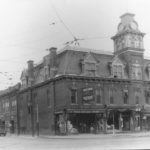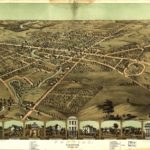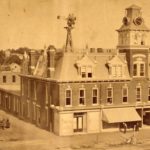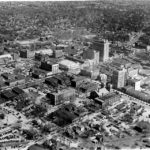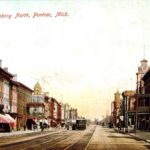About The Crofoot
The Crofoot Presents is Southeast Michigan’s most dynamic independent event promotion company. Each year, The Crofoot and affiliated companies produce more than 750 live events, including concerts, corporate events, weddings, festivals, and more.
The Crofoot Presents specializes in matching each event with the right location and facility. Our team prides itself on putting great shows in both established rooms and alternative spaces, regularly producing shows in nearly a dozen venues in and around Metro Detroit, and another dozen venues spread out across Mid and West Michigan via Fusion Shows (a division of the Crofoot).
The history of the company dates back to 1979 with the conversion of Saint Andrews Hall from underused fraternal hall into legendary Detroit nightspot. Together with a team of partners, Saint Andrews Hall was used as a springboard for expansion to other venues: The Shelter, Industry Night Club, 7th House, Clutch Cargo’s, and the music promotion company Ritual (which, along with St. Andrews Hall, was sold in 2001).
The Crofoot Building History

Built in 1830, the building known today as the Crofoot was constructed at the center of the Pontiac’s burgeoning business district (the corner of Pike and Saginaw). It was at the heart of Michigan’s first inland city, where the Saginaw Indian Trail (Woodward Avenue) crossed the Schiawassee Indian Trail (Orchard Lake Road). The Clinton River created a double peninsula where it snaked through what is now the Phoenix Center and Lot 9 (the large parking lot across from the Crofoot).
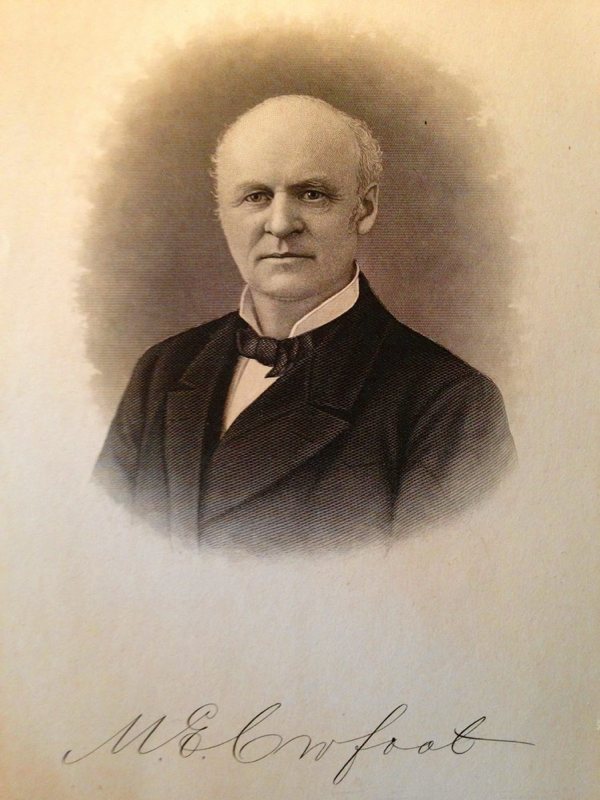
In 1882, the building was renovated by Michael E. Crofoot, a vigorous and active man whose life epitomized the development of Pontiac after its 1818 founding in the Civil War era, prior to the rapid growth from the expansion of the automobile industry.
Michael E. Crofoot was a prominent businessman, attorney, and Judge of Oakland County Probate Court from 1849 to 1856, highly involved in Oakland County, Michigan. Crofoot was also involved in national affairs, serving as a delegate to the 1856 Democratic National Convention. After the Civil War, Crofoot was selected in 1865 to represent Oakland County in raising subscriptions for the Michigan Soldiers’ and Sailors’ Monument in downtown Detroit. He lived three blocks up the hill on Williams Street. He was also a member of the State Building Commission for the State Asylum in 1874, which was completed in Pontiac in 1878. Later, he represented a defendant in 1882 before the United States Supreme Court. That same year, Crofoot rebuilt the 1830 era building at Pontiac’s first corner in 1882 and named it the “Crofoot Block”. He practiced law on the 3rd floor, overlooking from his 10-foot by 10-foot north-facing window the rapid growth of Pontiac’s Downtown Commercial District. Pontiac’s Crofoot School was named after this prominent family.
The Crofoot Building’s street level has housed barbers, meat markets, an American Express office, saloons, lunch rooms, shoe stores and millinery shops, while the second floor has housed photographers, land developers, tailors, insurance agencies, and attorneys. The third floor (lost in a fire) once housed Judge Michael E. Crofoot’s legal offices.
The Crofoot Building is arguably the oldest commercial building in Oakland County.
As recently as 2005, the City of Pontiac condemned the Crofoot property and scheduled it for demolition. However, in 2006, the Crofoot Presents began the renovation of this important Pontiac landmark.
On Sept 6, 2007, the doors to the Crofoot Ballroom opened with weekend long festivities. Since then, the Crofoot has found its place in the metro Detroit community as a new home for music, art, and celebrations. The building features state-of-the-art production, and much of the original historical integrity remains.

